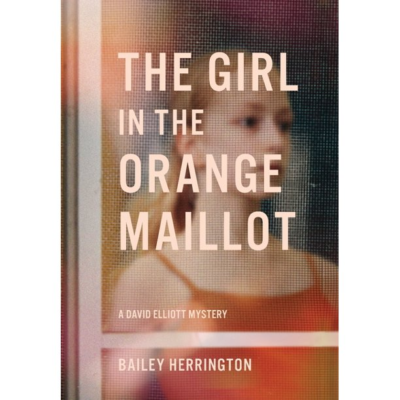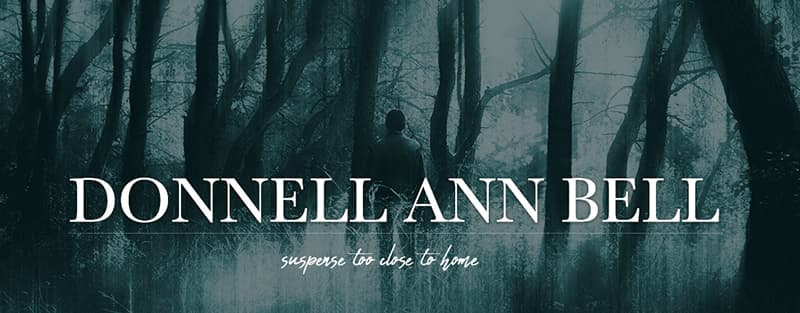 Welcome to HFMFF! Many of you know I left my beloved Colorado for New Mexico a few years ago. To date, it’s worked out fine as I go back and forth quite often. One of the highlights of living in my new locale is I discovered I lived catty-corner to another writer. Still, when he asked me to read his newest release, I did so reluctantly (my own deadline and all), but did the neighborly thing and said yes. Ladies and gentlemen, I couldn’t put The Girl in the Orange Maillot down. Not only is Mr. Herrington a literary talent, I feel fortunate to call him a friend and a new co-conspirator in the brainstorming department. So pleased to introduce him to you. ~ Donnell
Welcome to HFMFF! Many of you know I left my beloved Colorado for New Mexico a few years ago. To date, it’s worked out fine as I go back and forth quite often. One of the highlights of living in my new locale is I discovered I lived catty-corner to another writer. Still, when he asked me to read his newest release, I did so reluctantly (my own deadline and all), but did the neighborly thing and said yes. Ladies and gentlemen, I couldn’t put The Girl in the Orange Maillot down. Not only is Mr. Herrington a literary talent, I feel fortunate to call him a friend and a new co-conspirator in the brainstorming department. So pleased to introduce him to you. ~ Donnell
Food and Eating Idioms From Other Countries.
By: Bailey Herrington

Author Bailey Herrington
The lazy, hazy days of summer aren’t just about airline cancellations and mosquito bites. Summer means shrimp on the barbie, eating fresh peaches, corn on the cob, watermelon, grandmother’s favorite recipe for potato salad, to name only a few summer food delights.
I pigged out (Shameless lead-in to the blog topic) on the usual picnic fare last weekend: hot dogs, baked beans, coleslaw, potato salad, and watermelon. A neighbor told me she had Jose Cuervo for dessert yesterday. Ah yes, “Variety is the spice of life.” Another shameless lead-in to the topic today: Food and Eating Idioms From Other Countries.
First, a quick refresher: an idiom is a group of words established by usage as having a meaning not deducible from those of the individual words (e.g., rain cats and dogs, see the light ). the meaning of an idiom is figurative. The words and meaning don’t exactly go together: it’s raining cats and dogs really means it’s raining very hard.
Food and eating idioms are common in other languages. Here are some examples.
Brazil. Our language is Portuguese. Usually if a person is very hungry, it can be said like this “I could eat an ox” ( instead of a horse); work up an appetite turns into ” open the appetite”.
In Poland if you are very hungry, you will say: I could eat a horse with hooves.
Apparently a Russian person can get much more hungry, as we Russians say “I could eat an elephant” in such a case.
In Italian we say “I’d eat the table’s legs” …
Venezuela: if you say “I’m as hungry as a hardware store mouse” it means that you are really really hungry, you are starving!
Arabian idiom: when food is delicious we say “it’s so delicious that you eat your fingers after it!!”
One cannot ignore France when discussing food idioms. Here are a few choice ones.
Source: Kitchen French: 7 French Food Idioms – FluentUhttps://www.fluentu.com › blog › french-food-idioms
Raconter des salades. (Telling salads.) In English, we call them tall tales. But in French, when someone tells a story that seems a bit too crazy to be true, it’s called a salade.
Occupe-toi de tes oignons! (Mind your onions!) When someone’s putting their nose in things that don’t concern them fairly similar to the English phrase, “Mind your own beeswax!”
’ai la pêche! (I have the peach!) If you hear someone say this phrase, don’t go looking for a peach in his hands. Someone who says, “J’ai la pêche” means that he’s in high spirits or has a lot of energy. English variation: “I feel just peachy!”
Vouloir le beurre et l’argent du beurre. (Wanting the butter and the money from the butter.) Sound familiar? It should; this French expression is very similar to our “Have your cake and eat it too.” Just as you can’t have cake and eat it, you can’t have butter and the money you spent buying it.
Ça ne mange pas de pain. (It doesn’t eat bread.) When something “doesn’t eat bread,” it means that it’s not problematic or too expensive. Similar to “no skin off my nose,” this expression is used to mean something like, “it couldn’t hurt.”
Now let’s travel to Scandinavian countries for some food and eating idioms.
Source:
Our favourite Nordic idioms – ScandiKitchen – Scandi Lifehttps://www.scandikitchen.co.uk › nordicidioms
“Glida in på en räkmacka” -‘slides in on a prawn sandwich’ Sweden. it means someone who didn’t have to work to get where they are in life. (My favorite).
“At træde i spinaten” “To step in the spinach.” Danish, in Norway it’s salad instead of spinach!) Meaning: To make a mistake.
“Att lägga lök på laxen” “To put onion on the salmon” Swedish- Meaning: To make things even worse…
“ kiertää kuin kissa kuumaa puuroa” “To pace around hot porridge like a cat”Finnish – Meaning: To beat around the bush.
“Nu är det kokta fläsket stekt” “Now the boiled pork is fried” Sweden If someone tells you that, what they are really saying is ‘now things are really, really bad’.
“Er det hestens fødselsdag?” “Is it the horse’s birthday?” Danish. Meaning: the rye bread is too thick for my open sandwich.
Do you have a favorite among these food/eating idioms?
 About the Book: The Girl in the Orange Maillot
About the Book: The Girl in the Orange Maillot
This meticulously constructed thriller takes us to dark and harrowing corners of the human heart. Come for the twists, stay for the humanity. . . and the truth. ~ RICHARD CASS, Author of Mickey’s Mayhem, and Maine Literary Award Winner
“No lie lives forever.” Police procedural, courtroom drama, compassion, superb writing, filled with numerous twists and turns. . . .Rest up before starting; you’ll pull an all-nighter.” ~ DONNELL ANN BELL. Amazon Bestselling Author, Black Pearl, a Cold Case Suspense, 2020 Colorado Book Award Finalist
September 1963: Pastor David Elliott finds himself investigating an execution-style slaying. Eight years ago, the victim falsely accused David’s close friend of sexual abuse of a young girl. Now that friend’s son is charged with the murder. David’s efforts to prove his innocence provokes friction with police investigators, an influential church member, and David’s own life decisions. Meanwhile, two whip-smart women join David in the quest for the truth. The trio’s search propels them along a treacherous path with little to rely on but their sharp wits. To find the crafty killer in time to save their friend, the girl in the orange maillot is the key.
About the Author: Bailey Herrington hails from western Pennsylvania. After completing studies at The Lutheran Theological Seminary at Gettysburg, Herrington served congregations in Pennsylvania and West Virginia for twenty-four years. In addition to writing weekly sermons, Bailey created his “altar” ego, Pious Pete the Protestant Pope for congregational newsletters. He has previously published three previous mysteries: What the Barber Knew, Dead to Rights, and Pack of Scoundrels. Bailey lives in Las Cruces, New Mexico with his wife Karen. He loves baseball, cooking, playing golf, reading, and visiting museums and archeological sites.











Bailey, thank you for being my guest AND a great neighbor.
How delightful. I particularly like the one about not stepping in the spinach. I often don’t eat my spinach fast enough and there’s always a slimy mess festering in my fridge it seems. There’d be hell to pay for stepping in the spinach… Enjoyed the idioms!